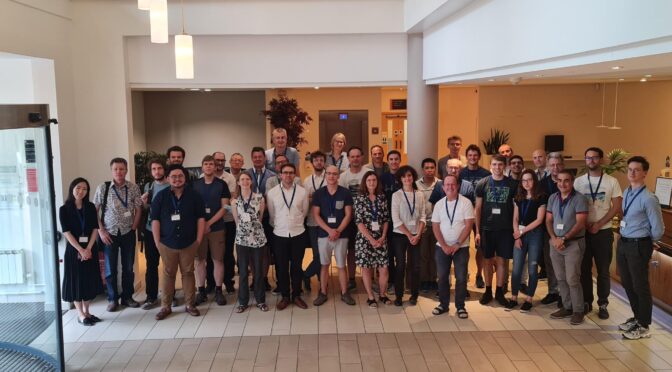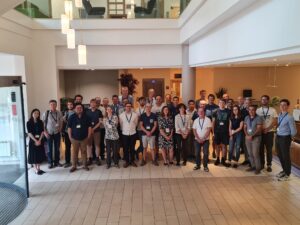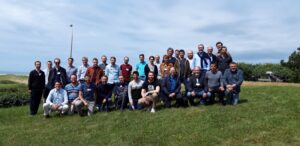State of the Art and Workshop Objectives
Data-driven methods have emerged as a novel paradigm to advance materials discovery over the past decade. Machine learning potentials (MLPs) enable the sampling of trajectories with the same accuracy of high-level electronic structure methods but at a fraction of their cost. MLPs have been established as a means to rationalize puzzles previously unapproachable by atomistic simulations. Elsewhere, the chemical and physical properties of large chemical spaces are now screened in a high-throughput fashion by leveraging artificial intelligence methods, materials simulations, and automation protocols. The screening is not only viable for the case of known structures, but generative models can now autonomously generate previously-unseen, and tailored, molecules and crystals structures with a target property. Machine learning (ML) methods therefore serve as formidable surrogates to accelerate expensive computational screening, but also to guide experimental screening and extract knowledge from data gathered via high-throughput or from literature. Furthermore, the advances in the theoretical understanding of how machine learning algorithms work is demystifying and surpassing the vision of data-driven approaches as magic black-boxes.
This event built upon the state-of-the-art in the field of machine learning for materials in two ways. Firstly, it helped instruct the next generation of young researchers on the latest advancements in methods and applications of AI for material discovery through didactic lectures and hands-on tutorials. Secondly, the workshop promoted a discussion on the implications of the latest advancements in data-driven methods on the different sub-areas of Materials discovery, bringing together experts of different fields in the world of machine learning for materials and promoting cross-contamination of ideas and techniques. Continue reading YOUNG RESEARCHER’S WORKSHOP ON MACHINE LEARNING FOR MATERIALS 2022 09-13 May 2022, Trieste (IT) – Report






